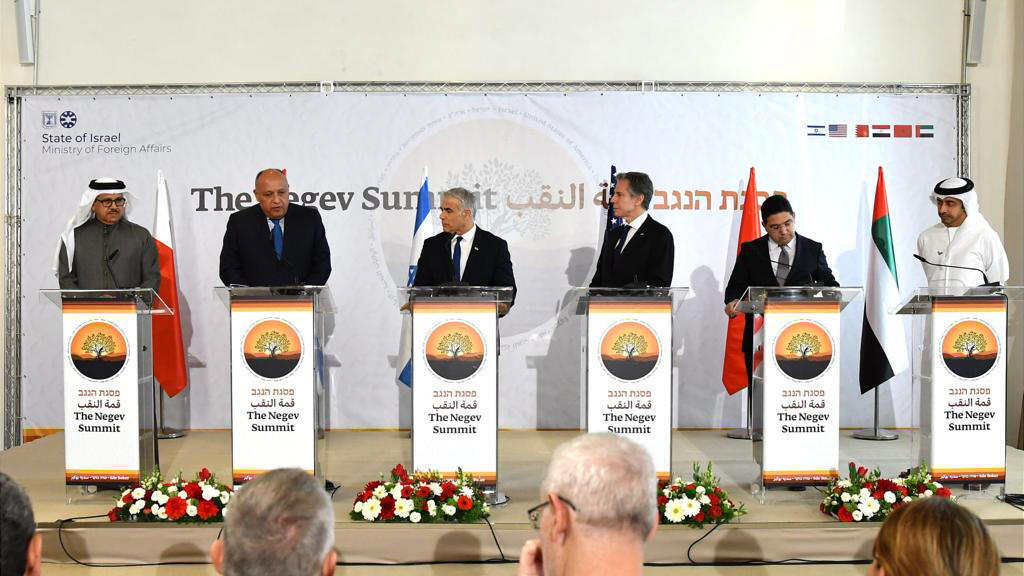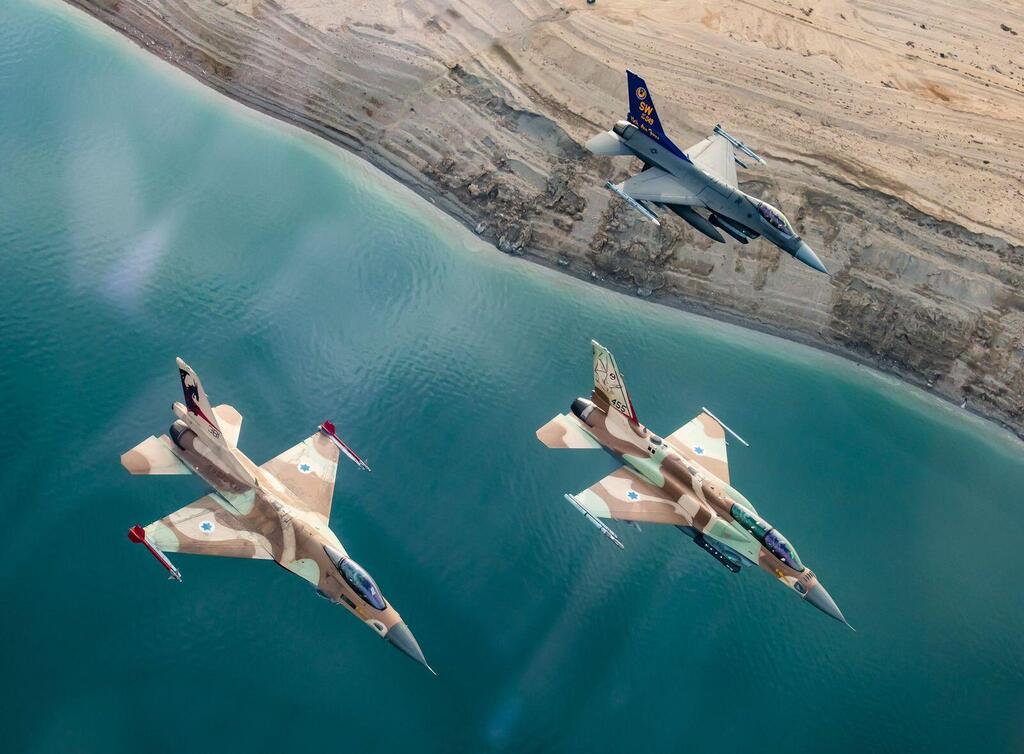Getting your Trinity Audio player ready...
With the specter of the Iranian threat looming over the Middle East, the Israel Defense Forces and armies of neighboring Arab countries are working to weave an aerial defense alliance in a bid to tackle the aggression of Tehran and its proxies across the region.
This week's Negev Summit in southern Israel saw the top diplomats of Israel, the United States, Egypt, Morocco, Bahrain and the United Arab Emirates convene in order to discuss burning regional issues, chief among them, Iran.
Throughout recent months, the countries have been brainstorming a regional defense alliance, which is set out to include collaborative drills and preparation for collective missions targeting various common threats —either directly from Iran, or Iranian proxies from Yemen, Syria, and Iraq.
The alliance, sponsored by the Israeli Air Force (IAF), will serve as an inflection point in the relations between Israel and its Arab neighbors.
For the first time, the Israeli military is open to the idea of providing neighboring armies that hold peaceful ties with Jerusalem with advanced U.S.-made aircraft in lieu of the outmoded Russian ones they currently employ.
Most of the inner workings and goals of the plan are kept confidential to protect allied countries.
While the long-term goal is stopping nuclear Iran, there is also an immediate terrorist threat sponsored by its powerful Islamic Revolutionary Guards Corps (IRGC), the Houthis in Yemen and other pro-Iranian regional actors.
The defense alliance would allow the IAF to intercept attacks beyond its borders, like the recent strikes on Saudi Arabia and the UAE, which are locked in a years-long war against the Houthis.
On the other hand, the IAF concludes a year of extensive freedom of action on the northern frontier in the form of dozens of large-scale operations against Iranian entrenchment in Syria and Hezbollah's precision-guided missile project, which would have effectively allowed the Lebanese terror outfit to turn simple rockets into smart munitions.
On the southern frontier, meanwhile, the IAF is expected to begin testing a new laser-based defense system around the Gaza Strip within a year after completing its procurement in the coming weeks.
An airstrike attributed to Israel near Damascus, Syria
The system will initially supplement the highly reliable missile-based Iron Dome defense system, but may ultimately supplant it if proven successful as it offers potentially unlimited output for minimal cost.
Meanwhile, the IAF is also planning to launch its first reconnaissance satellite into space next year and lay the groundwork for its first ground missile unit.






